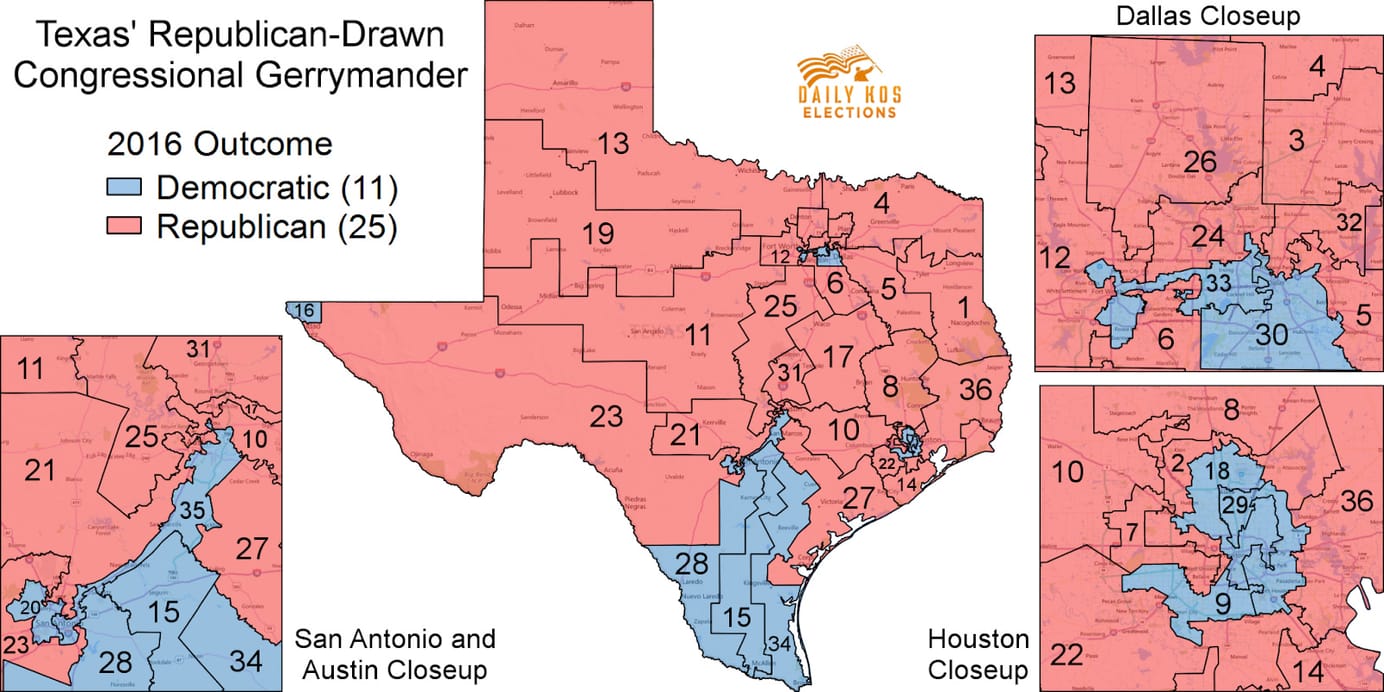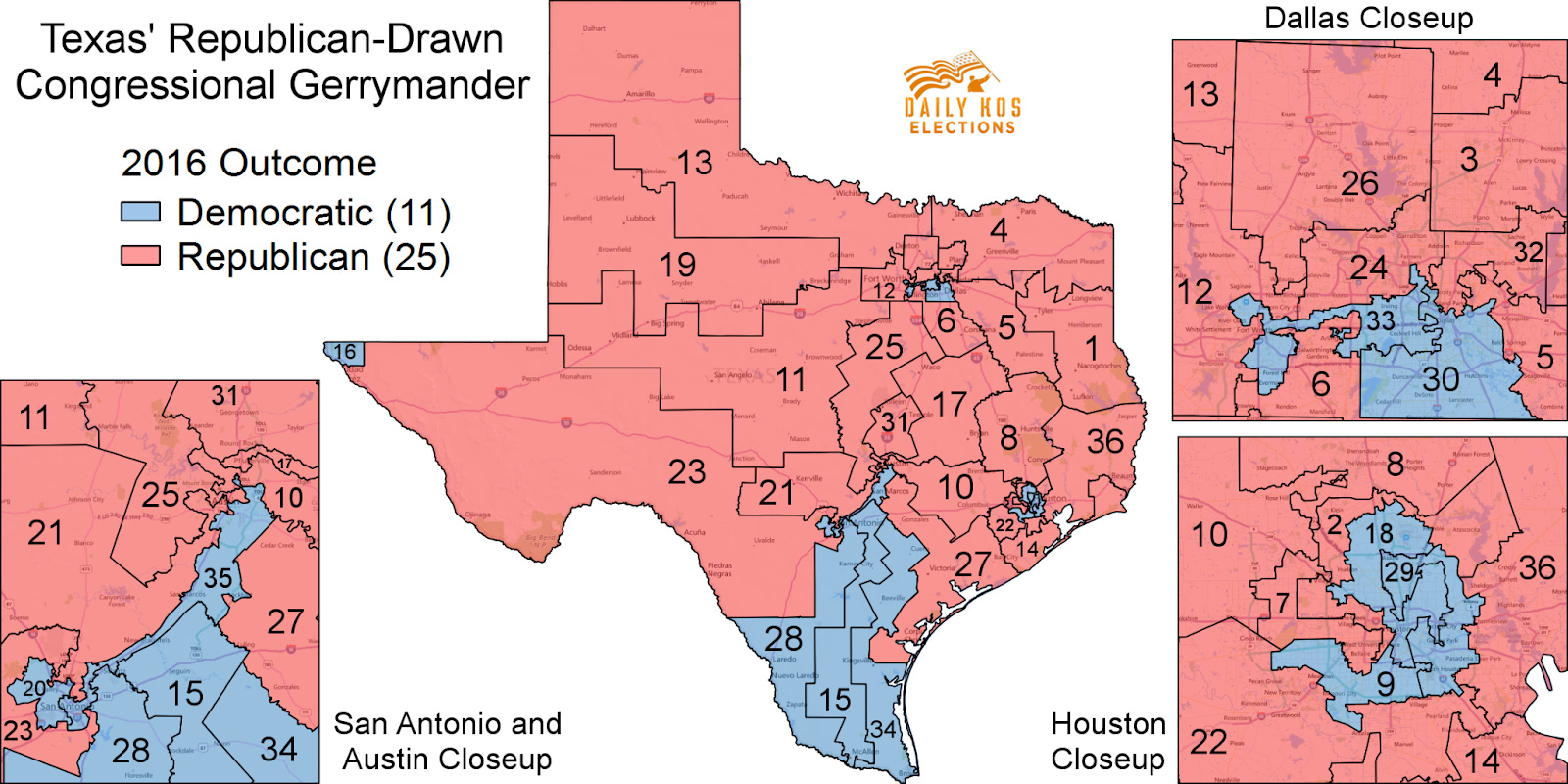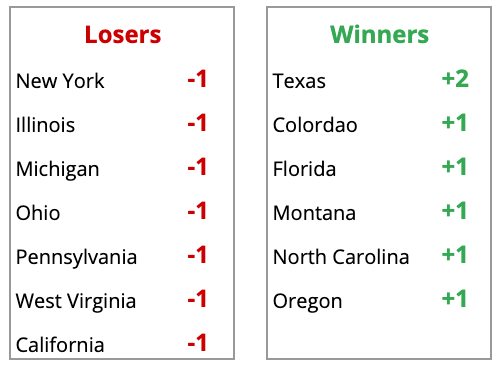
Making Sense of the Census
The Uphill Battle Democrats Must Climb to Maintain House Control
Hello and Happy May! Doesn’t the world seem a little bit brighter? The sun is emerging in most parts of the country, most of my friends and family have been vaccinated, and Chet Hanks is ready for White Boy Summer (it’s good to see white boys finally getting their due).
For that reason, we’re going to talk about the most boring but also the most consequential part of politics: the Census. So let’s break it down and discuss what it means for the future of politics. If you’re already an expert, skip ahead to the Initial Results.
What is it?
First and foremost, the Census is a Constitutionally-mandated survey conducted every 10 years to determine the total population of each state in the United States. I say total because it is meant to count everyone. Citizens, legal and undocumented immigrants. If you are a human (no, your dog doesn’t count, not even if his name is Walter), then you should be counted.
Why is it Important?
The Census will determine the resources given to each district in your state. If there are a lot of people who did not take the Census in your area, then your neighborhood could receive less funding for school, roads, housing, and social programs.
The other more macro reason is that the Census will determine how many congressional seats each state will be allotted for the next 10 years. That means not only how much influence a state has in the House of Representatives, but also how many electoral votes it has in the Presidential elections. In politics, 10 years is an eternity. It is especially important as some states are gerrymandering their maps to advantage the party in control.
What is Gerrymandering?
Another boring term that has huge consequences, gerrymandering is a way of drawing the maps to manipulate the boundaries to favor one party or to suppress the vote of a particular race or ethnicity.
My home state of Texas is a great example. My favorite district is district 35. Sure, that thin dolphin tail definitely is the most logical way to draw a district. Note, that district is covering South Austin and San Antonio, two Democratic strongholds, so that Democrats only win one district instead of two. Think about that, two of the four major (and bluest) cities in Texas are mostly represented by only one district.

Why Does this Census Feel Different?
Remember that other guy who was in the White House last year? Yeah, he tried to mess up the Census to advantage the GOP. Specifically, he tried to add a citizenship question to the Census to scare immigrants from filling out the Census. The Census is confidential, but by adding a citizenship question, he created the illusion that the government would use that to track down undocumented immigrants.
Even though he lost that battle and a citizenship question was not added, it still had lasting impacts on the results as shown in the initial results that were released last week.
Plus there was a whole pandemic thing that hit right in the middle of it, which made it extremely difficult for Census workers to reach out and encourage underrepresented communities to take the Census.
The Initial Results: Who’s Up & Who’s Down
The proof is in the numbers. We saw population growth in the south and west, but not to the extent that was expected. Indicating that undocumented immigrants were hesitant to fill out the Census and outreach to underserved communities was lacking. Arizona and Floria, in particular, were supposed to have a large swing and were expected to gain congressional seats. Only Florida was able to pick up one seat.

Outreach support was crucial in some areas. California spent $187MM to encourage participation (I would know, I got many a flyer in the mail). And it paid off. 70% of households completed the census in California, exceeding the national average and better than other important states like Texas, Florida, and Arizona. California did lose one congressional district, but it could have been worse had we seen more population growth in other states.
On the flip side, you have New York which would have avoided losing a congressional seat if a mere 89 more residents had participated. As someone on Twitter noted, I could find 89 people in Washington Square Park who didn’t fill out the Census.
What Does This Mean for Congress?
We don’t fully know just yet, but so far it is bad news for Democrats.
We won’t have the census block data (smallest geo) until September 30th, drastically delaying updated congressional districts which will make the 2022 midterm election cycle much shorter.
But the initial numbers do show an uphill battle for Democrats to maintain control of the House. There are a few reasons for that:
- The GOP controls the statehouses in Texas, Florida, and North Carolina and has full control of redrawing their state maps to favor their party and suppress black and brown voters. For those wondering, but California has a bunch of seats, and Democrats control that state! Yes, but they don’t control redistricting. An independent commission does. Republicans have full authority to redraw 187 congressional districts, while Democrats have control of just 75.
- Midterms after a presidential win usually spell disaster for the party in power. Obama, George W, Clinton, and Trump all lost the House in their first midterms. The only silver lining is if enough Americans can see the positive changes Biden is making in their lives and get out to vote. The COVID relief bill helped, but that is ages from the 2022 elections. Passing some form of the American Jobs Plan and American Family’s Plan would help (ahem abolish the filibuster...ahem Joe Manchin).
- Democrats are already at a disadvantage. Experts say redistricting alone would flip control to Republicans. So even though the House is currently 218-212, we have to assume Democrats are already down about 10 seats.
No matter your party preference, if you care about the vast issues we have in our country, it would be a disaster if the current state of the Republican Party regains control of the House. Passing legislation would slam shut which would cut off our ability to combat the climate crisis, solve the generational and racial economic inequality (avocado toast is not why Millennials can’t buy houses), gun control, etc. Republicans can also create commissions to “investigate” perceived wrongs (who remembers Benghazi?) and stymy Biden’s administration. Plus when 2024 rolls around, the House of Representatives could be used to overturn a legitimate, but close election. And Republicans know it.
“I can already tell you GOP intensity and turnout will be through the roof in 2022,” McInturff, a veteran GOP pollster said.
What Can Be Done to Hold the House & Senate?
Organizing, organizing, organizing.
- Organize and call your Senator to pass the For the People Act. As I’ve mentioned previously, it is THE most consequential bill to pass. It offers a range of solutions to reform our democracy and voting in America. Most notably, it requires states to use independent commissions to draw congressional district lines. The more we shore up democracy, the better our government functions, and the more it helps you.
- Organize in critical states like Texas to hold Republican officials accountable for drawing fair district maps. It’s not a sure thing, but raising a fuss and reaching out to your state representatives will help make it harder for Republicans to suppress to their heart's content.
- And finally, organize during the 2022 election. It will be crucial to get out every single voter who wants to see progress in this country. To reference Amanda Gorman, Democrats can climb this hill if we organize and get out the vote. Midterms have historically benefited Republicans because Democrats don’t turn out. Let’s put that notion in the past.
It’s an uphill battle for Democrats to maintain control of the House, but with activism, organizing, voting, and the right Democratic message we can beat back the unfair voting system and ensure all voices are heard in American elections.
So if you think democracy was saved on November 7, 2020, I’m sorry to say there is still more work to be done. Buckle up.
the roots of change media ecosystem Newsletter
Join the newsletter to receive the latest updates in your inbox.



